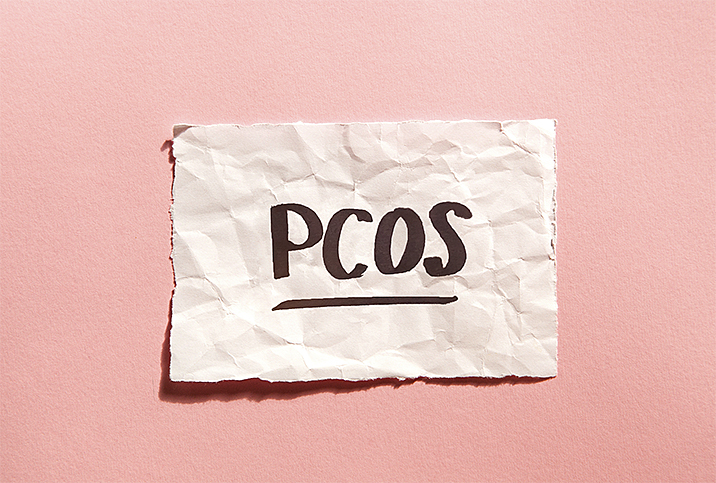Living With PCOS: 5 Ways to Cope

Approximately 10 percent of all women of childbearing age, or more than 5 million women, will develop polycystic ovary syndrome, also known as PCOS. This syndrome occurs when a female's ovaries produce high amounts of androgens—growth hormones that play a role in male traits and reproduction—causing a variety of problems.
Living with PCOS can feel unbearable, especially because there's no real cure or treatment to prevent or eliminate the symptoms of this condition. However, if you're suffering from PCOS, there are ways to cope.
First, let's look at exactly what PCOS is and why women experience such a variety of side effects. Then we'll review a few helpful strategies for coping with this syndrome.
What is PCOS?
Doctors do not have a solid idea of what causes PCOS, although some studies suggest a gene mutation as a possible cause. What we do know is that PCOS is a combination of symptoms that affect women in many different ways. Common symptoms of polycystic ovary syndrome include irregular periods, excess body hair, acne and fertility issues.
During ovulation, an egg is released from an ovary to either become fertilized by a sperm or released from a female's body. However, sometimes women do not have enough of the required hormones to properly ovulate. When this is the case and ovulation doesn't occur, many women with PCOS develop numerous small collections of fluid, or follicles, surrounding the eggs. The ovaries may not be able to regularly release eggs.
This condition can cause androgens to be produced in high levels, impacting a woman's hormonal balance. Not every woman with PCOS develops these follicles, which is why women with this condition experience different symptoms and forms of pain.
Five ways to help you cope
1. Find an educated doctor
There's a lot we don't know about polycystic ovary syndrome, and even gynecologists often don't have many answers when it comes to managing this disorder. No matter how mild or severe your PCOS symptoms are, it's important to find a medical professional you trust to help you come up with a treatment plan. Don't feel embarrassed to leave a doctor who isn't serving your needs—it's important to speak up and ask questions until you have confidence in the doctor you've chosen.
2. Consider birth control
Birth control pills are the first treatment choice in PCOS patients. If you're not looking to get pregnant any time soon, birth control may help your body better regulate hormones and lessen some of your PCOS symptoms. Studies have indicated that combined hormonal birth control can reduce androgen levels, prevent acne and help control your menstrual cycle.
Be sure to discuss birth control options with your doctor. They are well tolerated and have few side effects.
3. Look into ovulation-induction medications
Medications such as clomiphene citrate (Clomid) are often used to help PCOS patients induce ovulation to improve their chances of becoming pregnant. If you're struggling to conceive and have been diagnosed with PCOS, this type of medication can be helpful but is not without risks. Talk through the pros and cons with your doctor before making a decision.
4. Reduce your intake of processed foods
Many PCOS diets focus on low-carb intake, but it's actually processed carbs like white bread that can exacerbate symptoms as they turn to sugar and spike your insulin levels. Managing your insulin levels can help promote ovulation, so opting for whole-grain carbs, such as brown rice, and lean proteins, including chicken and fish, as well as boosting your vegetable intake can help to naturally lower your insulin levels and reduce negative side effects.
5. Find a support group
It's easy to feel alone when you're suffering from PCOS, but 1 in 10 women will experience it at some point. Connecting with other sufferers in person, in online forums or through social media can help you share your experiences and learn new coping strategies that might help alleviate some of the worst side effects of PCOS. It can also be beneficial to your mental health to know you have a team of women supporting and rooting for you.


















